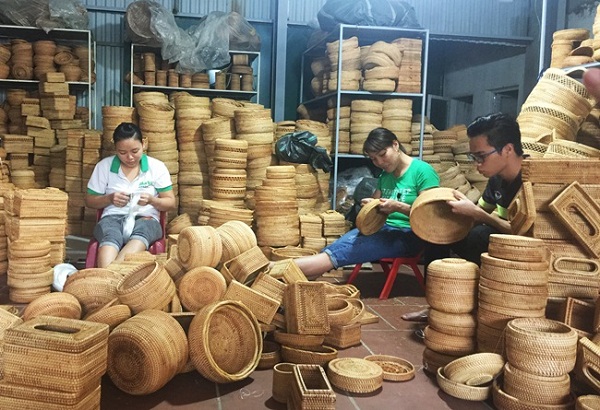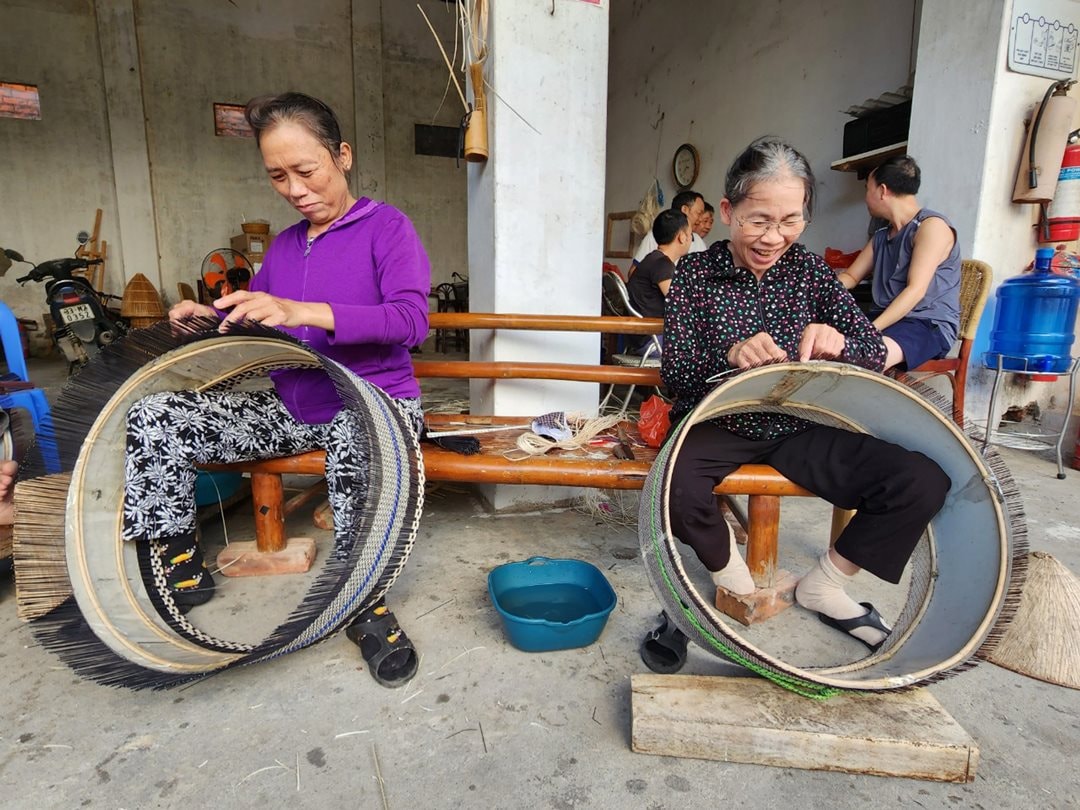Hanoi suburb helps OCOP overcome raw material shortages
Many localities in Chuong My District have been recognized as traditional craft villages, providing materials for the production of high-quality items.
Chuong My, an outskirt district of Hanoi, has seven bamboo and rattan villages holding a significant role in developing OCOP (One Commune One Product) items.
| Local workers at the Phu Vinh Bamboo and Rattan Weaving Village in Phu Nghia Commune. Photo: The Hanoi Times |
Being part of the OCOP program, the district benefits locals by creating jobs while preserving these crafts.
Tong Van Thai, Head of the district’s Economic Division said despite advantages, the bamboo and rattan businesses in Chuong My District are currently struggling with raw material shortages.
Every year they need nearly 600 tons of rattan, 700 tons of bamboo, 500,000 bamboo shoots, 100,000 small bamboo trees, and 500 tons of sedge. However, the dwindling supply of raw materials and price controls by importers, have resulted in lower incomes for those in the weaving industry, Hai told Hanoimoi Newspaper.
"Bamboo and rattan used to be readily available in the northern mountainous provinces but now we have to import from Laos, Cambodia, and Indonesia with high prices that drive up input costs," said artisan Nguyen Van Trung, Chairman of the Phu Vinh Bamboo and Rattan Association.
To address challenges, Trung and other local producers are working with scientific institutions to develop alternative raw materials from plants such as papaya, pumpkin and banana.
Sharing the same idea, Tong Van Thai, Head of the district's Economic Division said that skilled artisans have used these materials to produce handiworks that meet standards for export and have received positive feedback from customers.
The local authorities have also sought to establish stable resource regions.
Leveraging local advantages
| Artisans from the Phu Vinh Bamboo and Rattan Weaving Village have created new marketable products. Photo: Hanoimoi Newspaper |
Local artisans have changed designs to meet market demands, resulting in a number of deals for exports to different countries. Many of these products have earned three or four-star ratings for the OCOP goods.
The district is also home to four villages that produce wooden handicrafts, one that makes conical hats, one that specializes in stone carving, one in agricultural processing, and one in embroidery, presenting a significant opportunity for OCOP's development.
To date, Chuong My District boasts 183 OCOP-certified products and 23 more items have been added to the evaluation for the 2024 OCOP product ranking.
Among them, May Viet Trading Co., Ltd. in Phu Nghia Ward stands out with ten products recognized with four-star OCOP ratings.
Artisan Hoang Van Hanh, Director of May Viet Trading Co., Ltd. in Phu Nghia Ward, said the company's rattan and bamboo products are now exported worldwide and are popular with international tourists from Japan, South Korea, and China.













